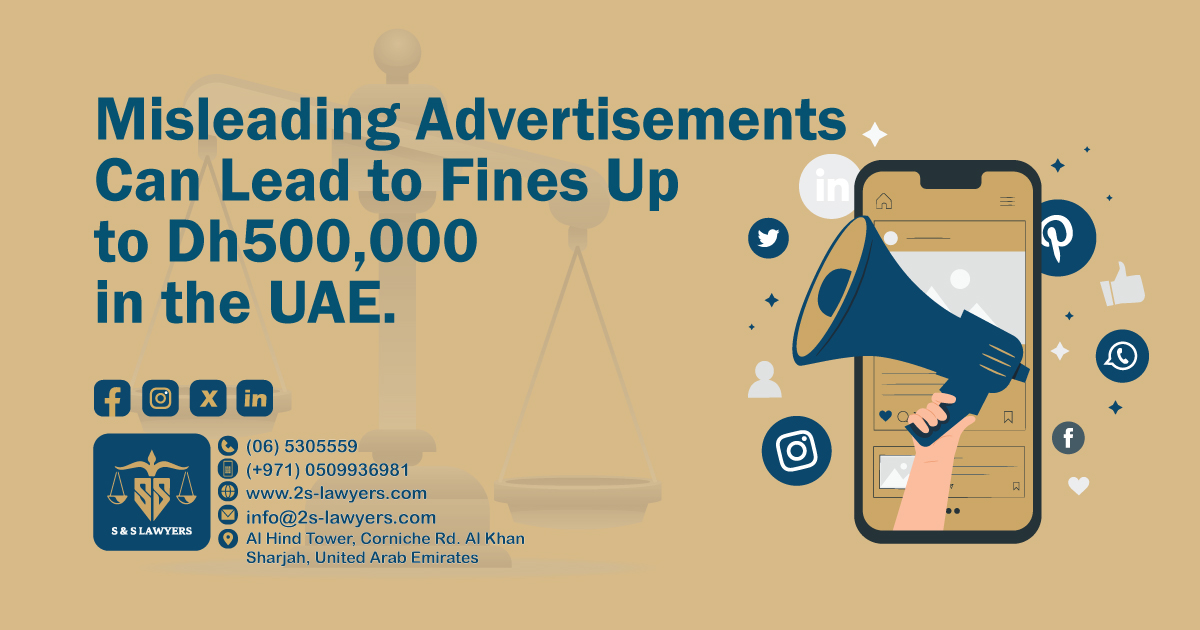Misleading Advertisements Can Lead to Fines Up to Dh500,000 in the UAE
Posted by
webtech

Under Article 48 of Federal Decree-Law No.34 of 2021 on combating rumors and cybercrimes, misleading consumers through false advertisements and promotions in the UAE can cost offenders of imprisonment and fines that is up to Dh500,000.
The UAE public prosecution highlighted the consequence that individuals might face if they mislead consumers through a video shared on its social media channels.
The United Arab Emirates has put up an advertising guidelines last October 2018, aiming to protect the public from marketing frauds and fake news and at the same time uphold public morals and promote economic development. The released guide covers content in all media platforms in the UAE and applies to the entirety of the advertising sector, ranging from audio, print and visual media organizations to online firms and licensed social media influencers.
The National Media Council (NMC) has been keen to define the general principles, frameworks and standards governing advertising in the media, based on the laws and regulations issued in this respect. The guide that was released aims to develop a practical framework that is written in relation to the advertisements, develop and regulate advertising activity as an effective industry that properly contributes to the advancement of economic development in the UAE.
The law states that those who use information technology solutions, online platforms or information networks to spread misleading information regarding commodities or services may be subject to imprisonment and fines ranging from Dh20,000 to Dh500,000 or both.

Authorities state that the disciplinary measure is also applicable to anybody promoting goods or services through misleading advertisement or using false data. And this addresses activities such as advertising, promoting, brokering, or dealing in virtual or digital currencies without proper authorisation from the relevant authorities.
Some of the things from the guidelines says:
- It should not spread rumors or biased and misleading news.
- It should not publish images or words that violate public morality.
- It should maintain ethical codes of conduct; and should uphold standards of honesty.
- It should respect intellectual property rights.
- Firms and individuals should not harm the economic system of the state.
